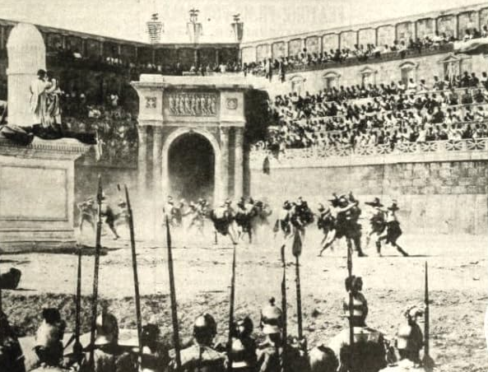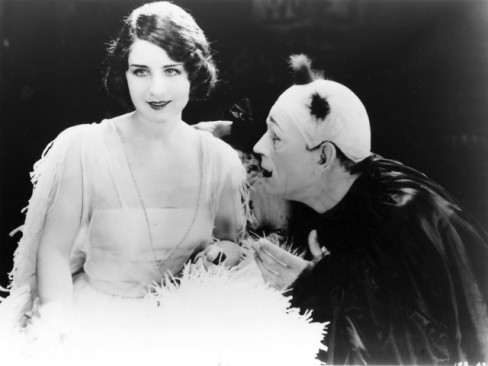 Kennington Bioscope presents its seventh Silent Film Festival, with the support of The Cinema Museum. This year along with our usual themes of rarely seen gems, restorations, and discoveries we are looking at the year of 1924 with many films on 35mm or from 35mm nitrate scans. All silent films will have live accompaniment by our highly acclaimed team of musicians. The line-up below is to be confirmed and subject to alterations.
Kennington Bioscope presents its seventh Silent Film Festival, with the support of The Cinema Museum. This year along with our usual themes of rarely seen gems, restorations, and discoveries we are looking at the year of 1924 with many films on 35mm or from 35mm nitrate scans. All silent films will have live accompaniment by our highly acclaimed team of musicians. The line-up below is to be confirmed and subject to alterations.
Notes on all films and programmes over the weekend are available here.
The Cinema Museum will open its doors at 09.00.
SATURDAY
10.00 Not for Sale (1924) – BFI 35mm print
Directed by W. P. Kellino. Starring Mary Odette, Ian Hunter, Gladys Hamer and Mary Brough. This comedy was made at Cricklewood Studios by Stoll Pictures, with sets by art director Walter Murton. Based on a novel by Monica Ewer, the story sees extravagant Lord Dering (Ian Hunter) cut adrift by his father with £5 a week. Forced to live in a Bloomsbury boarding house under an assumed name, he gets a job as a chauffeur. This was Ian Hunter’s screen debut, after which he went on to work for Alfred Hitchcock in The Ring, Downhill and Easy Virtue, all released in 1927. He appeared on stage and screen on both sides of the Atlantic, ending up making nearly 100 films. Piano accompaniment by Neil Brand.
11.40 Forgotten Film Pioneer – 35mm and digital prints
This presentation by Dave Peabody will look at the career of James Searle Dawley, who has been called `The First Professional Motion Picture Director’. Dawley was an American film director, producer, screenwriter, stage actor, and playwright. Between 1907 and the mid-1920s, while working for Edison, Rex Motion Picture Company, Famous Players, Fox, and other studios, he directed more than 300 short films and 56 features. He worked with such emerging stars as Mary Pickford, Marguerite Clark, and John Barrymore. As part of this presentation Dave will be screening 1908’s Rescued from An Eagle’s Nest starring D.W. Griffith, as well as a 35mm print of the spectacular 1912 The Relief of Lucknow. Piano accompaniment by John Sweeney.
13.00 Lunch
14.00 The Last Days of Pompeii (1913) – BFI 35mm print
Directed by Giovanni Enrico Vidali and, uncredited, Ubalda Maria Del Colle. Photography by Raimondo Scotti and set design by Domenico Gaido. Produced by Pasquali in Italy, this was one of two competing versions of the story made in Italy during 1913 (the other was produced by Ambrosio and directed by Eleuterio Rodolfi). 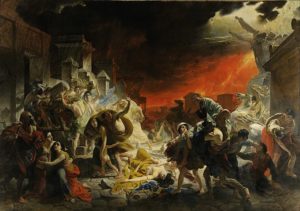 This production was based on a British novel by Edward Bulwer-Lytton published in 1834, itself inspired by the painting The Last Day of Pompeii by the Russian painter Karl Briullov, which Bulwer-Lytton had seen in Milan. It culminates in the cataclysmic destruction of the city of Pompeii by the eruption of Mount Vesuvius in AD 79. Piano accompaniment by John Sweeney.
This production was based on a British novel by Edward Bulwer-Lytton published in 1834, itself inspired by the painting The Last Day of Pompeii by the Russian painter Karl Briullov, which Bulwer-Lytton had seen in Milan. It culminates in the cataclysmic destruction of the city of Pompeii by the eruption of Mount Vesuvius in AD 79. Piano accompaniment by John Sweeney.
15.20 Restored Laughter – scans of 35mm nitrate, digital & 16mm prints
Presented by Glenn Mitchell and Dave Glass. The programme features recent restorations sourced from private and other collections and also from the Cinema Museum’s own archives. In the first of an intended series spotlighting specific production companies, these include a rare Lubin comedy starring Karno comedian Billie Reeves and, from the same studio, a long-standing Oliver Hardy mystery! Piano accompaniment by Neil Brand and Sam Geoghegan.
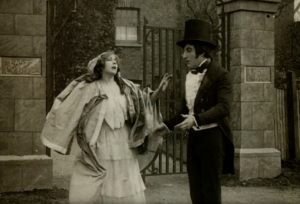 17.30 East Lynne (1913) Restoration Premiere – 35mm nitrate scan
17.30 East Lynne (1913) Restoration Premiere – 35mm nitrate scan
The first British feature-length film was of this sensational novel of 1861 by Ellen Wood. It was directed by Bert Haldane at the Barker Studios in Ealing, with Blanche Forsythe, Fred Paul and Fred Morgan in the leading roles. The film has been restored from the only original tinted and toned print known to exist, now in the collections of Chris Bird and Bob Geoghegan. The much-quoted (and frequently lampooned) line `Gone! And never called me mother!’ (variant: `Dead! Dead! And never called me mother!’) does not appear in the book; both variants come from the numerous stage and film adaptations, East Lynne having long become a staple of repertory and melodrama companies. A Victorian best-seller, it is remembered chiefly for its elaborate and implausible plot, centring on infidelity and double identities. In the story, Lady Isabel Vane (Blanche Forsythe) is distraught when her beloved father dies suddenly and the earldom and all the property go to a distant relation, leaving her homeless and penniless. She is a beautiful and refined young woman, who (for lack of other options) marries the lawyer Archibald Carlyle (Fred Paul) who buys her former home, East Lynne. Piano accompaniment by Colin Sell.
19.00 Dinner
20.00 He Who Gets Slapped (1924) – digital
Directed by Victor Sjöström with Lon Chaney, Norma Shearer, John Gilbert and Tully Marshall. Scenario by Victor Sjöström and Carey Wilson. After Baron Regnard (Marc MacDermott) steals both his greatest invention and his wife, scientist Paul Beaumont (Lon Chaney) loses all self-regard and joins a circus sideshow to become the most famous clown in France, known as `He Who Gets Slapped’ by other clowns. In its review, the New York Times described the film as `… a picture which defies one to write about it without indulging in superlatives … so beautifully told, so flawlessly directed that we imagine it will be held up as a model by all producers.’ One fan magazine, Movie Weekly, went further: `Occasionally an exceptional picture comes along which makes no attempt to pander to the box office. He Who Gets Slapped is one of this sort, an artistic masterpiece.’ Full supporting programme of Lon Chaney items including a 35mm print of The Lion, The Lamb, The Man (1914) and shorts from 1924. Piano accompaniment by Costas Fotopolous.
SUNDAY
10.00 Owd Bob (1924) – BFI 35mm print
Directed by Henry Edwards with J. Fisher White, Ralph Forbes and James Carew. Based on the 1898 novel Owd Bob by Alfred Ollivant. Location filming took place in the Lake District. Before silent cinema was reinvented by the presence of Uggie, everyone’s favourite cast member of the 2011 Oscar-winner The Artist, there was Owd Bob, Henry Edward’s 1924 British silent film, which featured Buttons the Old English sheepdog in his finest, and only, screen performance as the titular Owd Bob – a sheepdog whose gentle skills as a herder come under fire when he is suspected of being the rogue, sheep-killer dog terrorising the lambs of the Cumbrian countryside. The film is an adaptation of Alfred Ollivant’s classic children’s novel written in the Cumbrian dialect. Owd Bob is a mid-career entry in the directorial oeuvre of Henry Edwards, a hugely popular British actor, producer, director and scenarist, whose career began in 1916 and ended in 1953 with Robert Hamer’s brilliant, and hugely underrated, love-letter to French Poetic Realism, The Long Memory. Alex Rock – British Silent Film Festival. Piano accompaniment by Meg Morley.
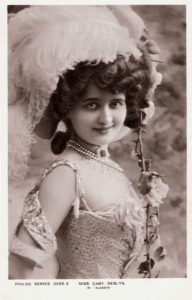 11.30 Restorations and Discoveries – scans of 35mm nitrate prints
11.30 Restorations and Discoveries – scans of 35mm nitrate prints
Joshua Cattermole, who previously brought us The Gold Diggers from 1923, will present his latest finds, which include a collection of Robert Paul films (1896-1901) and The Dogger Bank Incident (1904), together with an Oliver Hardy fragment from 1916. He will be including a fragment from the only surviving footage from Her Triumph with famous French singer and actress Gaby Deslys along with the surviving footage from the 1913 L’ultimo atout (Lying Lips) with Francesca Bertini. Michelle Facey will present a beautifully tinted and toned restoration of Nell Shipman’s, The Light on Lookout Mountain (1923) with Shipman, Dorothy Winslow, Ralph Cochner and Brownie the bear, a Northwoods snow-covered drama filmed at Priest Lake, Idaho. Piano accompaniment by Timothy Rumsey.
13.00 Lunch
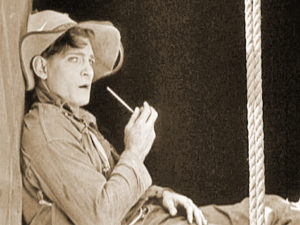 14.00 Just Pals (1920) – BFI 35mm print
14.00 Just Pals (1920) – BFI 35mm print
Directed by John Ford – his first film for Fox – with Buck Jones, Helen Ferguson and George Stone. Billed as a comedy-drama, the story is a double-dose of treacly earnestness, wherein layabout nogoodnik Bim (Buck Jones) discovers virtue and respectability through his friendship with eleven-year-old tramp Bill (Georgie Stone). There is a plot chiefly involving the pair’s misadventures as they negotiate the perils of joblessness and homelessness in a small Western town. Not incidentally, Bim has eyes for the local schoolteacher Mary (Helen Ferguson), whose naive entanglement in a shifty suitor’s embezzlement scheme drives most of the film’s action in its latter half. In 1920 Ford was beginning to make a name for himself after several years of directing low-budget pictures, mainly Westerns, for Universal. Like those earlier efforts, Just Pals is produced along modest lines, a five-reel feature with a small cast and an intimate plot. But, like many overshadowed films, it’s a miniature gem in its own right, a thoroughly engaging and entertaining film. – J.B. Kaufman. Piano accompaniment by Cyrus Gabrysch.
15.15 Comedies of 1924 – 35mm nitrate scans and digital prints
1924 was a vintage year for silent comedy and this programme commemorates its centenary with a cross-section of styles, from the urbane absurdity of Charley Chase to the grotesque parody performances of Ben Turpin, via more familiar names such as Monty Banks and some less-recalled comics, among them Cliff Bowes of the Educational comedies (there was a good reason for the name!). Co-presented by Glenn Mitchell and Matthew Ross. Piano accompaniment by Colin Sell.
17.00 Taras Bulba (1924) – BFI 35mm print
Directed by Vladimir Strizhevsky and Joseph N. Ermolieff and starring J.N. Douvan-Tarzow, Oscar Marion and Clementine Plessner. Based on Nikolai Gogol’s short story, it was made at the Emelka Studios in Munich and was one of several Russian-themed films that exiled producer Ermolieff made there during the 1920s. Art direction was by Kurt Dürnhöfer and Willy Reiber. The print we are showing was edited down from the film’s original three-hour version, in two parts, to a single two-hour version (with added English titles) by an influential cinema group, The Film Society, in London later in the 1920s. Taras Bulba is set in the 16th century, when the Cossack communities of the Ukraine maintained a barbarous armed camp, the Setch, south of the Dieper, and fought battles against the Tartars, Turks and the Poles. The two sons of Cossack Taras Bulba, Ostap and Andrei, are sent to the city to learn and train. Whilst in Dubno, Andrei encounters Pannotchka, the daughter of the Voivode of Dubno, and the two fall in love. The two brothers return to their Cossack community, and whilst celebrating, news comes that the Poles are attacking the Cossacks. Piano accompaniment by Ashley Valentine.
19.00 Dinner
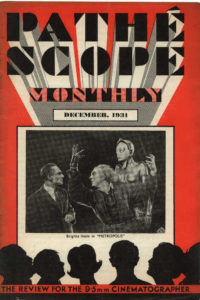 20.00 Pathescope Presents – 9.5mm prints
20.00 Pathescope Presents – 9.5mm prints
An ‘Only On Nine-Point-Five’ show, presented by Chris Bird. Original, 90-year old film prints will be screened on a vintage 1950s projector. The prints date from the golden age of this domestic format, beginning with a rare publicity reel advertising the range of what was on offer for film enthusiasts of the day to screen in their own homes, released when Pathescope had just secured the rights to distribute the finest films from German studio UFA on their gauge. For our main feature we have what we believe to be the only tinted copy of Metropolis in this country (the digital restoration being black and white throughout). We will also be screening a two-reel western, stylishly directed by a young William Wyler. The films will show off the range and quality of the films once available on the iconic home movie gauge, and, in this form, cannot be seen any other way. Piano accompaniment by Cyrus Gabrysch.
In addition to lunch and dinner breaks there will be short intervals between each programme.
TICKETS & PRICING
Weekend Ticket £30 / One Day £18 / Afternoon and evening pass £12 / Evening pass £6. You can also book dinner (£10) on both days at the Cafe Jamyang, next door to the Museum. Tickets and dinner bookable here.
Important note about meals: If you are ordering a meal please do so before Monday 15 April. The cafe now charges us a hire fee, and if we have not received enough bookings for meals by that date we will have to cancel the hire of the cafe and issue a refund for any meals that have been booked.

